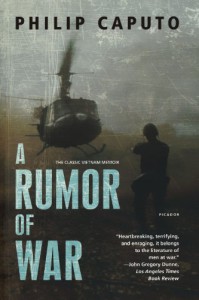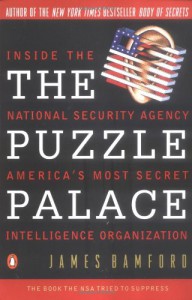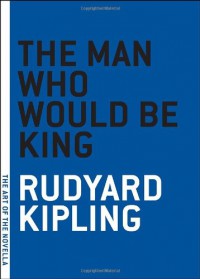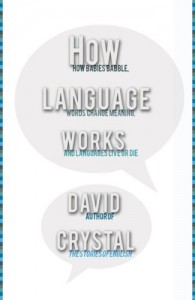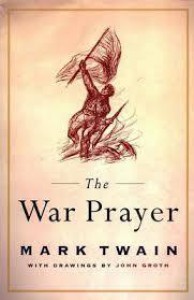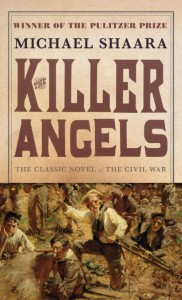 This book is an extremely in depth look at the first year of the Korean War. The events leading to Korean War are also lightly covered in the first couple chapters of the book, while the war's end is described in only a few pages. It does an amazing job at covering the first year of the war however, with nearly every American political decision, hypothetical military situation, and actual military action no matter the scale being covered with the utmost detail. I would recommend this to anyone with an interest in Korean, American, Cold War, or military history.
This book is an extremely in depth look at the first year of the Korean War. The events leading to Korean War are also lightly covered in the first couple chapters of the book, while the war's end is described in only a few pages. It does an amazing job at covering the first year of the war however, with nearly every American political decision, hypothetical military situation, and actual military action no matter the scale being covered with the utmost detail. I would recommend this to anyone with an interest in Korean, American, Cold War, or military history.
Diocletian
Just a teenager addicted to reading anything and everything, but particularly history. I am here as part of the exodus from Goodreads' increasing censorship. I am not yet sure if I am going to leave Goodreads completely, but this is plan B.
 This book is an extremely in depth look at the first year of the Korean War. The events leading to Korean War are also lightly covered in the first couple chapters of the book, while the war's end is described in only a few pages. It does an amazing job at covering the first year of the war however, with nearly every American political decision, hypothetical military situation, and actual military action no matter the scale being covered with the utmost detail. I would recommend this to anyone with an interest in Korean, American, Cold War, or military history.
This book is an extremely in depth look at the first year of the Korean War. The events leading to Korean War are also lightly covered in the first couple chapters of the book, while the war's end is described in only a few pages. It does an amazing job at covering the first year of the war however, with nearly every American political decision, hypothetical military situation, and actual military action no matter the scale being covered with the utmost detail. I would recommend this to anyone with an interest in Korean, American, Cold War, or military history.
Radio Free Albemuth
 This book is probably the most bizarre book I have read. It is a mixture of gnosticism, Christian mysticism, science fiction, extreme paranoia, and dystopianism. The only people who would want to read this would be extreme Philip K. Dick fans, which, although I enjoy some of of his works, I am not one of. However, I do like the dystopian atmosphere of the book, and because of this, I almost gave the book four stars.
This book is probably the most bizarre book I have read. It is a mixture of gnosticism, Christian mysticism, science fiction, extreme paranoia, and dystopianism. The only people who would want to read this would be extreme Philip K. Dick fans, which, although I enjoy some of of his works, I am not one of. However, I do like the dystopian atmosphere of the book, and because of this, I almost gave the book four stars.
 Cambodia, an Unnecessary War
Cambodia, an Unnecessary WarThis chapter of the book is devoted to Schanberg's news articles about Cambodia and notebook entries from the time, arranged in a chronological order. It allows readers to read the articles as they would have appeared in the New York Times back when they were written. The articles deal with every aspect of the Cambodian Civil War and its aftermath: The war crimes committed by all sides; mistaken bombings of allied Cambodian villages by US planes; the miserable conditions of refugees; the thousands of malnourished and starving children; the horrible conditions of the hospitals; and the rampant corruption of the Lon Nol regime. The last few stories in this chapter are devoted to Schanberg's personal experiences: being captured by the Khmer Rouge and nearly executed, life in the French embassy, and finally being taken to Thailand with all of the other foreigners stuck in the French embassy. 5/5
The Killing Fields
The only writing that this section contains is "The Death and Life of Dith Pran", about Schanberg and Pran's friendship leading up to the Khmer Rouge takeover, the massive guilt that Schanberg felt when he left Pran at the mercy of the Khmer Rouge, and the story of Schanberg's attempt to find Pran; however, the main theme in this is the story of Dith Pran's survival, escape and eventual reunion with his family and Schanberg, which is what the movie The Killing Fields was based off of. 5/5
East Pakistan Fights to Become Independent Bangladesh
This chapter, like the first, is a collection of Schanberg's articles written about the struggle for Bengali independence and the start of the Bangladesh Liberation War. It deals with the cruelty, suppression and "ethnic cleansing" of the Bengali people, particularly the Hindu minority, by the West Pakistanis; the suffering of the millions of refugees streaming over the border to India; the eventual intervention of India on Bangladesh's behalf; and finally, the horrible aftermath of the Pakistani massacres and how the US delayed India's receiving the peace offer by a day. 5/5
Vietnam, 1972
This chapter is composed of articles written from Schanberg's time in Vietnam, covering the "Easter Offensive" and the retreat of hundreds of thousands of refugees further south when a South Vietnamese unit breaks without even fighting the North Vietnamese, leaving the way open for the North Vietnamese to overwhelm the villages below the "Demilitarized Zone". The best story out of them all is the last one, covering the relationship between the American and South Vietnamese governments and the journalists stationed in the country. 5/5
Return to Cambodia: A Military Coup
This chapter is just one long article; it is a very good one however. It is about the terrible political atmosphere of Cambodia in the late 90s, with both Hun Sen and Prince Ranariddh trying to gain influence with the Khmer Rouge to use it against the other. Also written about was the quest for justice against Pol Pot and other leaders of the Khmer Rouge, which since both Hun and Ranariddh wanted more troops to fight the other, was nearly pushed aside. 5/5
The Cover-Up of U.S. POWs Left Behind in Vietnam
Schanberg has amassed a large amount of evidence pointing to the fact that hundreds of POWs were left behind in Vietnam after the US withdrawal, and that despite this evidence, the US Government has never officially admitted to leaving them behind. The government has not only not admitted to it, but, led by men like John McCain, have been actively denying this and accusing people holding these views of being crazy and "conspiracy theorists". 5/5
The Bush Doctrine in Iraq
This short chapter is a criticism of George Bush and other neoconservative's rampant militaristic political views, and also an attack on the Project for the New American Century. The last article gives the reasons why some journalists, after experiencing all the horrors of war, still wish to continue covering them. 5/5
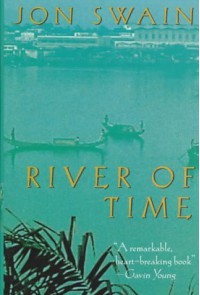 River of Time is mainly a memoir of Jon Swain's time as a journalist in Cambodia leading up to the takeover of the Khmer Rouge, but it also includes parts detailing his time in Vietnam, Laos and Ethiopia. This memoir is very emotional, and you can tell that the author has a lot of emotion for the area he writes about. The early part of the book is devoted to the naive and peaceful view of the Cambodians and foreigners in and around Phnom Penh, while at the same time the rest of the country was falling slowly but surely to the Khmer Rouge. After being stripped of his working visa in Cambodia (he still doesn't know exactly why it was taken away), the news service he was working for transferred him to Vietnam. He then describes his memories in Vietnam, which are dominated by the memories of the half Vietnamese half French woman he was with at the time, Jacqueline. The book then goes on to give examples of the horror and suffering that Swain saw when he returned to Phnom Penh, which was on the verge of falling to the Khmer Rouge by the time he arrived. And with this we get to the main reason I wanted to read the memoir, which was his experience of the fall of Phnom Penh. It is a very good description of the madness and uncertainty of Phnom Penh, as people were being rounded up, with the political opponents executed and everyone else being forced out of Phnom Penh on a mass exodus to work on collectivized farms. Much of this chapter will be fairly familiar to people who watched the movie The Killing Fields. After being taken to Thailand, he then briefly describes his life there, his short stay in Laos, and finally his visit to Hanoi. After a description of the horrors and suffering of the Vietnamese boat people, he tells of his return to Europe and his decision to accept an assignment to Ethiopia- during which he is captured and held prisoner for being a suspected "imperialist spy". During his time in Ethiopia as a prisoner, Swain reflects on his childhood and his time in the French Foreign Legion, although he never actually finished training, but he was in it for a brief period. After being freed from Ethiopia, he went back to France and then to London- And while in France, his relationship with Jacqueline ends, she being tired of his constant running away without her, and having already lost a journalist husband in Cambodia, she could not bare to go through it again. After a period working a desk job at the Sunday Times of London, he received a message from Dith Pran saying that he had survived; Swain then returned to Cambodia to see his old friend and experience the aftermath of the Khmer Rouge. The Phnom Penh he returned to was not the one that he had left; it had been so thoroughly destroyed that the hotel he was staying in (Only two had been reopened in the year following Phnom Penh's liberation by the Vietnamese, and one was being used strictly to house foreign aid workers) could not even serve meals because they did not have any utensils. There were no phones, no paper, no monks and no currency; the libraries had been emptied of all there books, and had just reopened a few days before his visit, with only two English novels in the entire library: Little Women and George Orwell's Burmese Days. The country had nearly been obliterated. Swain says that if it had not been for the Vietnamese invading when they did, Pol Pot may have succeeded in completely destroying any vestige of Cambodian society. After this he returned to "liberated" Saigon (renamed Ho Chi Minh City), and saw the suffering and poverty that were now rampant in the city. Many of his friends were suspected of being Western spies, and only the families of rich Communist officials from Hanoi were doing well under this new regime. Swain ends the book saying he hopes that Indochina will eventually return to what he remembered it as, but that it is difficult to keep his hopes up that Indochina will return to its former self.
River of Time is mainly a memoir of Jon Swain's time as a journalist in Cambodia leading up to the takeover of the Khmer Rouge, but it also includes parts detailing his time in Vietnam, Laos and Ethiopia. This memoir is very emotional, and you can tell that the author has a lot of emotion for the area he writes about. The early part of the book is devoted to the naive and peaceful view of the Cambodians and foreigners in and around Phnom Penh, while at the same time the rest of the country was falling slowly but surely to the Khmer Rouge. After being stripped of his working visa in Cambodia (he still doesn't know exactly why it was taken away), the news service he was working for transferred him to Vietnam. He then describes his memories in Vietnam, which are dominated by the memories of the half Vietnamese half French woman he was with at the time, Jacqueline. The book then goes on to give examples of the horror and suffering that Swain saw when he returned to Phnom Penh, which was on the verge of falling to the Khmer Rouge by the time he arrived. And with this we get to the main reason I wanted to read the memoir, which was his experience of the fall of Phnom Penh. It is a very good description of the madness and uncertainty of Phnom Penh, as people were being rounded up, with the political opponents executed and everyone else being forced out of Phnom Penh on a mass exodus to work on collectivized farms. Much of this chapter will be fairly familiar to people who watched the movie The Killing Fields. After being taken to Thailand, he then briefly describes his life there, his short stay in Laos, and finally his visit to Hanoi. After a description of the horrors and suffering of the Vietnamese boat people, he tells of his return to Europe and his decision to accept an assignment to Ethiopia- during which he is captured and held prisoner for being a suspected "imperialist spy". During his time in Ethiopia as a prisoner, Swain reflects on his childhood and his time in the French Foreign Legion, although he never actually finished training, but he was in it for a brief period. After being freed from Ethiopia, he went back to France and then to London- And while in France, his relationship with Jacqueline ends, she being tired of his constant running away without her, and having already lost a journalist husband in Cambodia, she could not bare to go through it again. After a period working a desk job at the Sunday Times of London, he received a message from Dith Pran saying that he had survived; Swain then returned to Cambodia to see his old friend and experience the aftermath of the Khmer Rouge. The Phnom Penh he returned to was not the one that he had left; it had been so thoroughly destroyed that the hotel he was staying in (Only two had been reopened in the year following Phnom Penh's liberation by the Vietnamese, and one was being used strictly to house foreign aid workers) could not even serve meals because they did not have any utensils. There were no phones, no paper, no monks and no currency; the libraries had been emptied of all there books, and had just reopened a few days before his visit, with only two English novels in the entire library: Little Women and George Orwell's Burmese Days. The country had nearly been obliterated. Swain says that if it had not been for the Vietnamese invading when they did, Pol Pot may have succeeded in completely destroying any vestige of Cambodian society. After this he returned to "liberated" Saigon (renamed Ho Chi Minh City), and saw the suffering and poverty that were now rampant in the city. Many of his friends were suspected of being Western spies, and only the families of rich Communist officials from Hanoi were doing well under this new regime. Swain ends the book saying he hopes that Indochina will eventually return to what he remembered it as, but that it is difficult to keep his hopes up that Indochina will return to its former self.***
This was a very good memoir, and I would recommend it to anyone who has an interest in Vietnam or Cambodia. It is one of my goals in life to visit every country in Indochina. Although I have yet to step foot out of the United States, I have done a lot of reading on Indochina and have an immense interest in visiting (and maybe even living) in the area. I am not entirely sure why, but since the age of 12 or 13 I have always wanted to visit.
 A brief but enjoyable memoir of Orwell's time in the P.O.U.M. (Workers' Party of Marxist Unification) fighting against Franco and the Fascists. Along with containing some of Orwell's most memorable experiences from his time in revolutionary Spain, the book also contains details of the fracturing of the Republican factions and the eventual suppression of the Trotskyists, Anarchists and left wing Socialists by the more numerous Russian backed "Stalinist" Communist forces.
A brief but enjoyable memoir of Orwell's time in the P.O.U.M. (Workers' Party of Marxist Unification) fighting against Franco and the Fascists. Along with containing some of Orwell's most memorable experiences from his time in revolutionary Spain, the book also contains details of the fracturing of the Republican factions and the eventual suppression of the Trotskyists, Anarchists and left wing Socialists by the more numerous Russian backed "Stalinist" Communist forces.
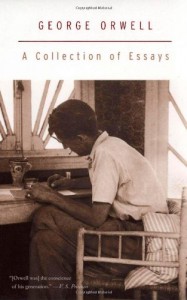 Such, Such were the Joys...
Such, Such were the Joys...This essay is about Orwell's school years and also somewhat of a criticism of the educational system of the time. A section that I found particularly amusing was on how the English treated the Scottish Highlanders: "The pretended belief in Scottish superiority (At Orwell's school; they had an obsession with Scotland) was a cover of the bad conscience of the occupying English, who had pushed the Highland peasantry off their farms to make way for the deer forests, and then compensated them by turning them into servants." 4/5
Charles Dickens
In this essay George Orwell tries to find in Dickens' works his political ideology, which Orwell does by discovering what Dickens is not, instead of what he is. He says that Dickens was good at criticizing many of the issues of the day, but that instead of proposing a new system for the issues, he just wanted a more "moral" version of the current system, which Orwell contributes to Dickens not being imaginative enough. It also contains a pretty good statement from Orwell on the French Revolution: "In reality the whole of the Terror, so far as the number of deaths goes, was a joke compared to one of Napoleon's battles." 4/5
The Art of Donald McGill
Orwell explains why British artist Donald McGill's post cards are so popular and some of the underlining meanings behind them. 4/5
Rudyard Kipling
Orwell's opinions on Kipling and his writings, and a good explanation and criticism of the British Imperialism of Kipling's time. He also came up with a perfect summary of Kipling that I had nearly come to on my own after reading The Man Who Would Be King: "Kipling is a jingo imperialist, he is morally insensitive and aesthetically disgusting." Another funny description Orwell made of Kipling was that he was a "good bad poet." 5/5
Raffles and Miss Blandish
This essay mainly focuses on how the detective novels had changed between the dawn of the twentieth century and the time Orwell wrote this essay (1944). Detective novels of his day had become much more violent and sadistic (No Orchids for Miss Blandish is the example he uses for this) then earlier detective novels like Sherlock Holmes and Raffles. He also makes the argument that authoritarianism is much more visible and rampant in the newer detective novels, where the only thing differentiating the police and the criminals is that the police are more powerful (might makes right), as the police use the exact same tactics in these novels as the criminals (torture, murder, random beatings etc.). 4/5
Shooting an Elephant
This is a story from Orwell's time in Burma as a sub-divisional police officer, when an elephant had escaped from captivity and rampaged through a village and killed a man. According to Orwell this is the event that showed to him the real nature of imperialism and why despotic governments act the way they do. 5/5
Politics and the English Language
This essay is a criticism of the direction the English language was (and possibly still is) going, particularly in the way it is being warped to help convey political messages. There are many criticisms in this essay, but the two that I found the most interesting were that Orwell held that writers are becoming much more abstract and less concrete in writing and how many Saxon based words are being switched out for their Greek or Latin "scientific" sounding equivalent. Two quotes that can summarize this essay quite well are "Political speech and writing are largely the defence of the indefensible," and "Political language has to consist largely of euphemism, question-begging and sheer cloudy vagueness." 5/5
Reflections on Gandhi
Orwell's opinions on Gandhi are mixed. On the one hand, he seems to admire his push for Indian sovereignty and his non violent methods, while on the other hand, he does not agree with many of the personal moral standards he advocates, as in fasting, emotional dis attachment (to the extent of not even having any close friends), complete abstinence etc., which he considers "inhuman". "No doubt alcohol, tobacco, and so forth, are things that a saint must avoid, but sainthood is also a thing that human beings must avoid." 4/5
Marrakech
Orwell briefly describes some of the things he observed in his time in Marrakech, Morocco. The relations between different ethnic communities, how they are often taught that their European overlords were superior to them, how many of the Europeans (Including Orwell himself) often noticed the plight of the animals before the plight of the natives, and overall a glimpse into the racism that is pervasive in an imperialistic power. 5/5
Looking Back on the Spanish War
Looking Back on the Spanish War is a brief recollection of Orwell's time fighting against the Fascists (the side that eventually won) in the Spanish Civil War. I found the entire essay very interesting, particularly the parts about how foreign governments and the left and right of Britain's political parties were taking sides in the war and how each would make the side that it supported into angels and the opposing side into demons. I think that we have a lot to learn from this essay in light of the current situation in Syria. A section I found extremely interesting in this essay was the one on atrocities in war, which the following quotes are taken from. "But unfortunately the truth about atrocities in war is far worse than that they are lied about and made into propaganda. The truth is that they happen," and "But what impressed me then, and impressed me ever since, is that atrocities are believed in or disbelieved in solely on ground of political predilection." My only complaint for this essay is that it is too short, though I heard that he covers much more about his time in Spain in Homage to Catalonia, which after reading this essay I now plan to read. It is also interesting to see many of the themes that Orwell ends up covering in 1984 first being contemplated in this essay. 5/5 (Is 6/5 possible?)
Inside the Whale
The first section is somewhat of a review of a novel called Tropic of Cancer, which, as I have not read (or even heard of) up until this point, I will not go any further into details. The second section is a talk on some of the popular poems of the post World War I period, and how the themes and styles of the popular poets and authors changed between the end of World War I and the dawn of World War II. This section contains an interesting description of Communism in Western Europe though: "The Communist movement in Western Europe began as a movement for the violent overthrow of capitalism, and degenerated within a few years into and instrument of Russian foreign policy." The third section goes back to discussing the works of Henry Miller (The author of Tropic of Cancer) and Orwell's interpretation of the story of Jonah, and thus the namesake of this essay. This section also shows an intense pessimism for the future of Western Civilization, which he predicted would descend into dictatorships which would try to kill the individual and freedom of thought (Basically the themes of 1984). 4/5
England your England
According to Orwell, every country is different and each has its own outlook and mentality. This essay is Orwell's attempt to show England's national outlook. The first section is merely an introduction to the theme while also briefly mentioning patriotism, which Orwell says that you cannot understand the modern world unless you accept how influential it is. The second section goes on to talk about how people from a certain country always carry certain stereotypes(which Orwell calls "national characteristics"), and he goes on to give a couple of examples, which I do not entirely agree with. The rest of the section goes on to discuss the national characteristics that Orwell has found true about the English people, which may or may not be true (I have never known anyone from England), although from my reading of English history it appears many might well be. Orwell also says that for how massive the British Empire was, that the mentality of the English people themselves was very peaceful and anti-militaristic. In the third section Orwell justifies his talking about the British people as a single people, even though many groups (Scottish, Welsh etc.) would disagree with his doing so. The fourth section is about the declining competency and usefulness of the ruling class and how useless they had become, and how for the entirety of the British Empire only a few of the English upper class were the ones benefiting and the rest of the British Empire (Even England itself) was on the whole still extremely poor. The fifth section talks about the decay of certain subsections of the middle class (he calls them the "Blimps") in the post World War I period, and a criticism of the left wing intelligentsia of the time. The sixth and last section of the essay talks about the changing economic circumstances of Britain and the rise of the "indeterminate" social class. He presents his dream for the post World War II England, which unfortunately for him, was just that. A dream and nothing more. 5/5
Boys' Weeklies
Orwell studies the weekly stories for boys of his day and attempts to identify the views of the people that read the stories, and the messages that the stories try to convey to their readership. He does this by examining the two oldest and longest running of the boys' weeklies, the Gem and the Magnet, though later he examines the newer weeklies. An interesting topic he brings up about the new weeklies is that they are more violent and adventurous, but were still no where as violent as the American equivalent of the day, which starred the typical American hero who "puts everything right by socking everybody else on the jaw." 4/5
Why I Write
The sixth and final essay- and the main reason I read this book. I wanted to find out what Orwell's inspiration for writing books like Animal Farm and 1984 was. It answered that and also had a short biography of what got him into writing. I am a little disappointed that it was so short, but it was still very good nonetheless. 5/5
 This is a book in the same vein as Coming Out of the Ice by Victor Herman. It is a tale of survival against incredible odds, and in both books the author had to live in a world seemingly gone mad, where the bizarre and the barbaric became the everyday and the normal, with horrors like starvation and sickness commonplace. This book is not only Dr. Haing Ngor's personal memoir of surviving in these circumstances but also a history of the Communist takeover of Cambodia and a book discussing much of Cambodia's culture and customs. This book is disgusting, disturbing and emotional; it requires a strong stomach to read through. This is also one of only a few books (2-3 others besides this from what I recall) that have made me cry, and it got so bad that I had to stop reading for a while. I hope Dr. Ngor's prayers are answered and that he, his unborn child, his wife, and their families will meet in a better place far from this world's troubles.
This is a book in the same vein as Coming Out of the Ice by Victor Herman. It is a tale of survival against incredible odds, and in both books the author had to live in a world seemingly gone mad, where the bizarre and the barbaric became the everyday and the normal, with horrors like starvation and sickness commonplace. This book is not only Dr. Haing Ngor's personal memoir of surviving in these circumstances but also a history of the Communist takeover of Cambodia and a book discussing much of Cambodia's culture and customs. This book is disgusting, disturbing and emotional; it requires a strong stomach to read through. This is also one of only a few books (2-3 others besides this from what I recall) that have made me cry, and it got so bad that I had to stop reading for a while. I hope Dr. Ngor's prayers are answered and that he, his unborn child, his wife, and their families will meet in a better place far from this world's troubles.
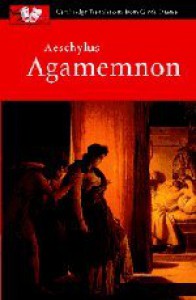 As much as I wanted to love this book, it was only "meh". Don't get me wrong, it is a masterpiece, but it is a historical masterpiece, not a current one. This book has two main things going against it. One, it is not really even a book. It is a play, so reading this is similar to reading a script, which is not very interesting for most people. Secondly, it is a translation, and not just a translation from a current language (which would be difficult enough) but from a language spoken approximately 4500 years ago. A lot of its beauty and sophistication is lost in translation, no matter how good the translator is. Despite these downsides, the major upside (and my only reason for reading the book) is for its historical and mythological value.
As much as I wanted to love this book, it was only "meh". Don't get me wrong, it is a masterpiece, but it is a historical masterpiece, not a current one. This book has two main things going against it. One, it is not really even a book. It is a play, so reading this is similar to reading a script, which is not very interesting for most people. Secondly, it is a translation, and not just a translation from a current language (which would be difficult enough) but from a language spoken approximately 4500 years ago. A lot of its beauty and sophistication is lost in translation, no matter how good the translator is. Despite these downsides, the major upside (and my only reason for reading the book) is for its historical and mythological value.
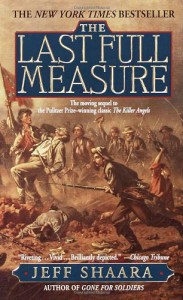 A very good book. It is not quite the masterpiece that The Killer Angels is, but it is a very good book nonetheless. Jeff Shaara's writing skill has vastly improved since writing Gods and Generals. My one major complaint with the writing style in this book is how often he overuses ellipses. Overall it is a very good piece of historical fiction.
A very good book. It is not quite the masterpiece that The Killer Angels is, but it is a very good book nonetheless. Jeff Shaara's writing skill has vastly improved since writing Gods and Generals. My one major complaint with the writing style in this book is how often he overuses ellipses. Overall it is a very good piece of historical fiction.
The Book of Corrections: Reflections on the National Crisis During the Japanese Invasion of Korea, 1592-1598 (Korea Research Monograph)
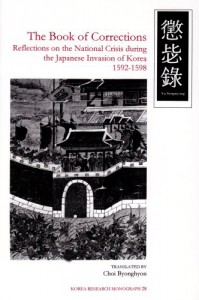 Affordable books in English about the Imjin War are few and far between. This book was not only affordable, but it was source material, written by Yu Seong-ryong, a man who was deeply involved in both the political and military affairs of the Choson Korean State during the invasion. Anyone interested in Korean (Or even Chinese or Japanese) history should read this book.
Affordable books in English about the Imjin War are few and far between. This book was not only affordable, but it was source material, written by Yu Seong-ryong, a man who was deeply involved in both the political and military affairs of the Choson Korean State during the invasion. Anyone interested in Korean (Or even Chinese or Japanese) history should read this book.
